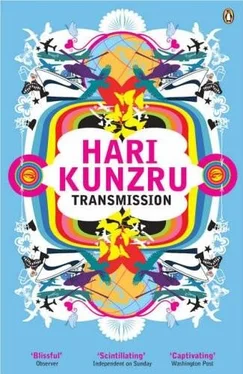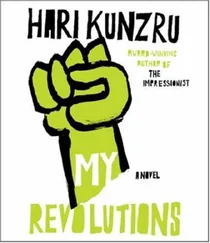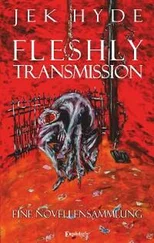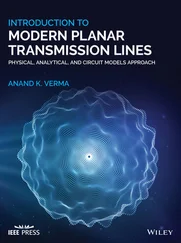She had been doing the job for a year, enjoying having her own money, real money instead of the inexhaustible play-money which had killed Caroline. Then she met Guy He came up to her at a boring party and immediately started running lines, old ones: I saw you across, what a beautiful, anyone ever said, such a coincidence. What astounded her was his gall, the impression he gave that the world and all the things in it were listed for him on a menu. Unlike other men she had met with the same confidence, there was nothing mannered about Guy. He was, in that respect, innocent. Life had always obliged, always given him what he asked for.
Because he would not allow her to refuse, she agreed to be taken out and so unleashed a storm of drinks and dinner, a barrage of delivered flowers. Within a couple of weeks she was confronted with the inevitable: a sofa and a dimmer switch and no good argument against letting him undress her. He did nothing weird or offensive and seemed so happy afterwards that it made her contact-happy too; she felt wanted, chosen. Soon she was turning down other dates to stay in with him at his new apartment. They watched DVDs and ate ice-cream. About once every twenty minutes he got up to survey his river view, talking continually about the future of this or that, the latest, the next wave, the bleeding edge. He always had a stack of men’s magazines and a new gadget whose manual he was struggling to decipher. He was, she decided, quite sweet in an English sort of a way.
Though he idolized rock stars and rebels, there was nothing self-destructive about Guy. He didn’t want to change the world, just to be in the lead as it moved forward on its preordained path. Gaby herself had never seen much sense in rebellion (things always stayed the same whatever you did), but even she was struck by the unconsciously ruthless way he set about taking pole position in life. Without appearing to try, he always ensured he was first in line. He was the very opposite of Caroline; he seemed to feel no unease about his entitlement.
Guy drummed out a rhythm on his knees and Gaby watched him. He slid the cab window open and she sat with her arms wrapped round herself as they crossed the river. Evening newsstands were headlining the latest terrorist alert. Somewhere in Victoria they passed a street which had been blocked off by a pair of squad cars. Maybe, she thought, it wasn’t her. Or even him. Maybe it was the city which had gone bad. There was a sourness about, an aftertaste of fear.
Oddly, she had moved in with him because of his parents. He seemed to find them embarrassing, and she had to wheedle her single visit with flattery and sulking. They drove through Sunday rain to an old vicarage in a Shropshire market town, a house filled with ornamental china, heavy oak furniture and the flatulent smell of a pair of elderly chocolate Labs who spent most of their time asleep in their baskets in the kitchen. Gilly and Edward seemed a little intimidated by their son, and Guy adopted an imperious air around them, self-consciously mocking his father’s opinions and fidgeting over lunch as if to signal his impatience to get away. Gaby found unexpected pleasure in the dog hair and the untuned piano and the row of Wellingtons by the back door. These solid homely things were helpful, even comforting. They seemed to lie behind Guy’s confidence like a guarantee, and it was partly the idea of being connected to them that made her say yes when he suggested she give up her flat and move in with him.
These days Gaby was hearing that voice again, the one which told her to get out, to smash up all the emotional chairs and tables so there would be no going back, so she could tear down this version of herself and start again.
The taxi pulled up at In Vitro, and one of the concierges opened the door. They passed through the tall glass doors into the atrium. As they waited by the lift, they both looked for the hundredth time at the vitrine set into the marble cladding of the wall, containing objects found during the building’s construction. There were old bottles, Roman coins, a shoe buckle, a human shin bone.
Guy liked the presentation more than the things themselves. He accepted the principle that heritage added value; even the past had a future, and though in itself this display was more or less a collection of rubbish, here it was at least contributing to the texture of a contemporary living space. Gaby straightforwardly wished it would go away. It was an unwelcome reminder that beneath her feet was an earth full of household waste and human remains, disposables that even after hundreds of years had not been disposed of. Rising up in the lift, they both felt a sense of relief, of having made a lucky escape from the mud sucking at their heels.
‘I wish they would put in some flowers instead of that horrid thing,’ said Gaby. You can’t choose, she was thinking. You can’t choose the things you keep.
‘So do I,’ replied Guy eagerly. It was the first conversation she had initiated in almost two hours, and he was keen for it to go further. But he could think of nothing interesting to add about flowers or archaeology. The chance fizzled out.
They made their preparations for bed in silence, circling round each other and folding clothes, their thoughts soundtracked by the insect whine of electric toothbrushes. Gaby smoked a cigarette on the balcony and Guy took a shower, during which he surreptitiously masturbated, thinking about a fantasy partner who was like Gaby but kinder, less abrasive. Then he set his bedside alarm (which checked its accuracy using a signal sent by an atomic clock in Greenwich) and switched out the light. After a few minutes Gaby slipped in beside him.
They lay for a while in the dark. Guy thought about pitches. Gaby thought about Guy, about his absurd sense of his own importance, about the way nothing bad had ever happened to him. If there was a buffet table in a room, he walked straight up and began to eat. If there was one chair, he sat down. Thailand or Mauritius or Zanzibar or Cancún or Sharm el-Sheikh or Tunisia or Bali or the Gold Coast or Papeete or Gran Cayman or Malibu. So many places for Guy. All the same.

The next morning (by which time variant 01 had infected an estimated 3.2 million individual hosts around the world) Leela started to work her glamour on the life of Guy Swift. Her subject went off to work, leaving his girlfriend in bed, pretending to be asleep. On the journey he flicked through the cab driver’s Sun , skimming stories about paedophiles and TV presenters, a football team buyout, a 34DD publican’s daughter from Surrey. He had slept badly, jerking awake several times during the night, convinced he was late for a meeting. Now he felt as if his mental activity were being filtered through a diffuse obstruction in his brain, something porridge-like in texture and consistency which was preventing key synapses from firing.
The Shoreditch street on to which the Tomorrow * building faced was of Dickensian narrowness and squalor. At ground level, flyposters and stencil graffiti coated the walls of the high-windowed brick buildings. Someone had dumped an old sofa by the row of council bins. As the taxi grumbled round the cobbled corner and he caught sight of the Tomorrow * banner above the sweatshop door, Guy experienced a twinge of apprehension. Most mornings, unless he was feeling fragile from the night before, the sight of his company headquarters filled him with excitement. Today he had an obscure sense that something was wrong, which was confirmed as soon as he stepped through the door.
About a dozen people were standing around in reception. Several more were playing a game of table football. They all seemed cheerful, which was probably not unconnected with the fact that none of them was working. In his rare moments of self-doubt, Guy sometimes fretted that some elements of his organization were not a hundred per cent committed to achieving Tomorrow *’s objectives. To counter this he had formulated a tripartite management strategy, fostering (bullet point one) a culture of goal-sharing, (point two) publicly rewarding excellence and (three) eavesdropping on email and phone conversations, hoping to find out who was against him. The need to spy took hold only occasionally, and usually turned up no conclusive evidence. He had held off altogether since the Stoli-fuelled evening when, trawling through the pictures of David Beckham in the receptionist’s outbox, he found a message that referred to him in the course of three lines as ‘his lordship’, ‘fancypants’ and ‘mister quiffy’. The next day, in the midst of his hangover, he had terminated the girl’s contract, citing ‘presentability issues’ (a low-cut top he had previously rather liked) as the reason. He had confided in no one and subsequently the episode had made him uneasy; he was not altogether sure it fitted his ethical profile.
Читать дальше












